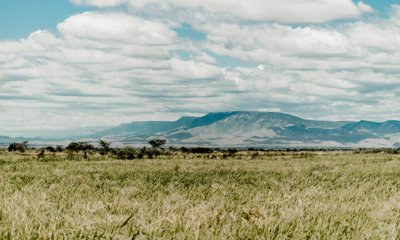Research by Imperial College London has identified critical climate-driven weaknesses in the agricultural supply chain for smallholder farmers in sub-Saharan Africa. Researchers developed new financial instruments and piloted an innovative multi-stakeholder insurance and loan de-risking programme.
Issue
The 2011 UN Global Hidden Hunger Index is designed to measure and track hunger comprehensively. Of the 20 countries with the highest index scores, 18 were in sub-Saharan Africa, a region susceptible to inherent agricultural supply chain nutritional deficiencies and to escalating climate variability.
Additionally, bank lending decisions and insurance policies often do not serve the needs of smallholders in sub-Saharan Africa. Agricultural insurance in emerging economies also suffers from poor data quality, limited claims experience, high monitoring costs, and low uptake.
Approach
The team at Imperial College London improved the models for weather-driven crop losses, financial incentives and re-insurance options.
They developed a weather-within-climate model that predicts the impact of extreme weather events across a range of agricultural settings and hydro-ecological situations. Given the limitations of global climate models to simulate local hydro-meteorological variability, work undertaken by the team drew on historical records to parameterise the distribution of hydro-meteorological variables.
The team adapted the modelling framework to quantify the risk of crop loss to weather variability under climate change scenarios, and implemented a risk transfer mechanisms to be used by banks and insurance companies to estimate exposure to risk of individual farmers.
Impact
The integration of satellite datasets, models, financial schemes, and stakeholder engagement enabled an evidence-based risk instrument which lending institutions and insurance companies could use to justify changes in lending behaviour.
In Tanzania, an insurance policy, launched as a result of the project, was the first to protect farmer-level needs, while being managed as a country-level risk transfer instrument.
The WINnERS team, with the World Food Programme and the World Bank, quantified the impact of two pilot schemes carried out in Tanzania. They estimate that 50,000 Tanzanian households benefitted form the projects. The World Bank noted that 88% of households gained access to finance for the first time, and smallholder farmers were able to double their average yield.
The success of these projects led to new investments which deepen farm resilience and sustainability, assist women farmers to access finance, and extend de-risking solutions to a large pool of banks in Tanzania, Ghana, Uganda, and Zimbabwe.
More information
Institution: Imperial College London
Researchers: Professor Sir Gordon Conway, Dr Zen Makuch, Dr Enrico Biffis, Dr Erik Chave
Share this resource
This is an open access article under the terms of the Creative Commons Attribution License (CC BY NC 4.0), which permits use, adaptation, distribution and reproduction in any medium or format, provided the original work is cited and it is for non-commercial purposes. Please contact us for other uses.
How to cite
Royal Geographical Society (with IBG) (2023) Research that has secured supply chains for Africa’s smallholder farmers. Available at https://rgs.org/supplychainsforsmallholderfarmers Last accessed on: <date>
